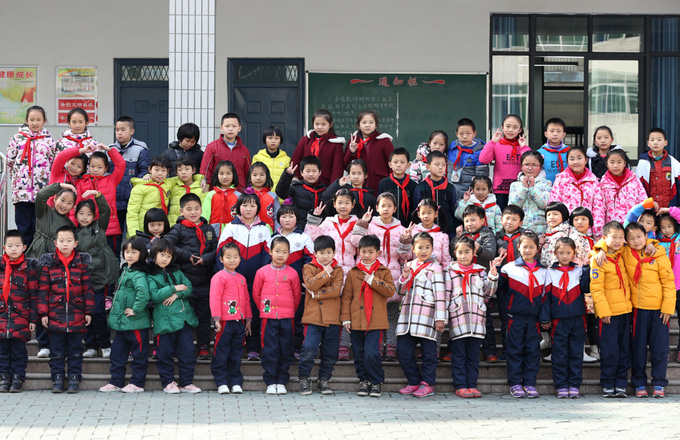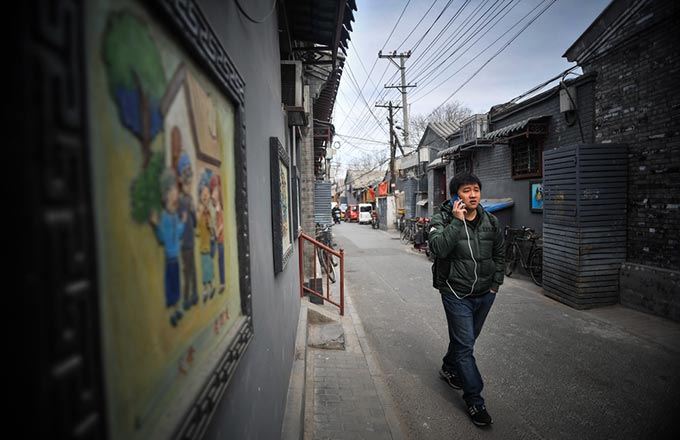China issues white paper on judicial reform of Chinese courts
VI. Deepening Judicial Openness
In order to further promote judicial impartiality, safeguard the people's right to know, participate and supervise, and improve the judicial transparency and public credibility of the judiciary, the Supreme People's Court has taken the lead in making overall plans and arrangements, simultaneously advancing the establishment of four platforms for openness of judicial process, openness of court trail, openness of written judgments, openness of enforcement of judgments and enforcement actions, and with the aid of modern information technology and new media platforms, continuously expanding judicial openness in both depth and scope. In November 2016, the 24th Session of the Standing Committee of the 12th National People's Congress heard and reviewed the report on deepening judicial openness and promoting judicial impartiality delivered by the Supreme People's Court, and highly commended the work of judicial openness.
Promoting openness of judicial process. In November 2014, the China Judicial Process Information Online was officially opened. So far, all the provincial-level courts nationwide have established unified judicial process information disclosure platforms covering all the courts at three levels within their respective jurisdictions, all of which are connected with the China Judicial Process Information Online, thereby realizing full coverage and sharing of judicial process information nationwide. From the date of acceptance of a case, the parties to the case and their process attorneys can, by entering their valid certificate numbers, log onto the platform to check and download the process information and documents relating to the case at any time, and receive procedural legal process on line. As of the end of December 2016, the China Judicial Process Information Online had released 520,000 pieces of open trial information, and published 1,838 announcements of court session, and received over 985,000 page views in total. From its trial operation in August 2014 to the end of 2016, the website has disclosed the judicial process information of all the 25,509 cases handled by the Supreme People's Court to the parties involved and their process attorneys, released 525,000 pieces of information, and successfully pushed 33,000 pieces of text messages. On August 1, 2016, the National Corporate Bankruptcy and Restructuring Case Information Online was officially opened, which becomes an online information platform for releasing various information about bankruptcy cases, and on which the legal process, notices of recruitment of administrators, notices of recruitment of investors, notices of asset auction and other relevant information are simultaneously published.
Promoting the openness of court trials. On December 11, 2013, the China Court Trial Live Broadcasting Website was opened. On September 27, 2016, on the basis of comprehensively upgrading the China Court Trial Live Broadcasting Website, the Supreme People's Court officially opened the China Court Trial Online, thereby realizing the collection and authoritative release of videos of court trials conducted at the people's courts at all levels. So far, 1,389 local courts have been connected with the China Court Trial Online. Through this website, the public can watch the court trials of cases that are conducted at the courts nationwide in real time, demand videos of court trials, access statistical information of court trials broadcast live, and store and share such videos and information through their Weibo and WeChat accounts, thereby realizing full coverage, real-time release and in-depth openness of court trial information. Since July 1, 2016, the Supreme People's Court has provided online live broadcasting of the court trials of all the cases that can be made public according to law. Within less than half a year after the court trials were broadcast live on line, the live broadcasting of court trials conducted by the Supreme People's Court has attracted 96,000 viewers in real time and another 1.14 billion viewers not in real time. The people's courts at all levels have attached great importance to the openness of court trials of major cases, and broadcast live the courts trials of a lot of major cases drawing wide attention, such as the retrial of Archangelos Gabriel salvage case and the series case of administrative disputes over "Qiaodan" trademark. The people's courts at all levels have broadcast live the court trials of 439,000 cases on line, attracting over 1.7 billion viewers. On January 7-8, 2016, the Haidian District People's Court in Beijing broadcast live the entire court trial of the case of "Qvodplay" suspected of seeking profits by spreading pornographic items, which lasted for more than 20 hours, attracted over 1 million viewers, and simultaneously posted 27 long Weibo messages reporting the entire court trial, which accumulatively received over 36 million views.
Promoting the openness of written judgments. In July 2013, the Supreme People's Court opened the China Judgments Online as the centralized platform for the openness of written judgments nationwide, and took the lead in publishing the judgments made by it on the website. Since January 1, 2014, all the effective judgments made by the people's courts at all levels have been published on the China Judgments Online. On November 15, 2015, the China Judgments Online underwent a revision by adding the functions such as one-click intelligent search, search of related documents and personalized services, and realized the openness of written judgments in five languages of minority nationalities, including Mongol, Tibetan, Uygur, Korean and Kazak, available for viewing and downloading. On August 30, 2016, the mobile client APP of the China Judgments Online was officially launched. Since August 2016, the China Judgments Online has received over 20 million page views every day. As of the end of 2016, the China Judgments Online has published over 25.72 judgments, received over 4.7 billion page views by users from more than 190 countries and regions in the world, and become the largest judgment publication website in the world. The Supreme People's Court has newly prepared and amended 568 templates of instruments for civil lawsuits and 132 templates of instruments for administrative lawsuits, all of which are made available to the public free of charge, so as to improve the standardization of written judgments. On August 30, 2016, the Supreme People's Court promulgated the amended Provisions on the Publication of Judgments by People's Courts on Line, listing all the types of judgments that should be made public, and requiring that all the judgments shall be published on line except those involving state secrets, crimes committed by persons under legal age, cases settled through mediation or in which mediation agreements are homologated, divorce actions or upbringing and guardianship of minor children; judgments involving personal privacy shall be published on line after redacting the contents involving personal privacy; the judgments of first instance that have been appealed or protested shall also be published on line and linked to the corresponding judgments of second instance; and with respect to the judgments not made public, to the extent not disclosing any state secrets, the case numbers, courts trying the cases, dates of judgment and reasons for non-disclosure shall be stated. The mode of publication of judgments has been changed from the traditional mode of centralized publication by special organs into the mode of one-click publication by the judges handling the cases on the case handling platform, and the mechanisms for handling the complaints lodged and comments made by the public and for public supervision of judgments have been established, so as to put the openness of written judgments under the supervision all social circles.
Promoting the openness of enforcement information. Since November 2014, the Supreme People's Court has begun to release the information of persons subject to enforcement, the list of dishonest persons subject to enforcement by the courts nationwide, information of enforcement process and the decisions on enforcement on the China Enforcement Information Online in a centralized manner. On September 14, 2016, the WeChat account of "China Enforcement" opened by the Supreme People's Court was officially launched on line, which provides the functions of access to enforcement information, publication of enforcement regulations, interpretation of laws and regulations, publication of enforcement documents, etc., so that the public can access enforcement information and receive judicial services at any time. As of the end of 2016, the enforcement information release platform had made public 6.44 million dishonest persons subject to enforcement, released 40.65 million pieces of information about persons subject to enforcement, and received 29.16 million page views of information about enforcement cases. The courts in all regions have generally opened the enforcement information release websites that are connected with the China Enforcement Information Online and updated the information in real time.
Innovating on the form and content of judicial openness. The Supreme People's Court has published the Gazettes of the Supreme People's Court, Work Reports of the Supreme People's Court and the Annual Work Reports of the People's Court (in Chinese and English) on a regular basis, as well as the white papers on the situation of judicial protection of intellectual property rights in China, on the trial of maritime cases, on the trial of environmental and resource cases, on the trial of administrative cases, on the judicial reform and on the judicial openness, and released the judicial documents and information about major cases and the work of courts to people at home and abroad. The people's courts at all levels have been making efforts to improve judicial openness by means of court affairs websites, Court Weibo and WeChat, mobile news client APPs, court president's letterboxes, liaison platforms of members of people's congresses and people's political consultative conferences, themed open days and otherwise. On December 31, 2014, the governmental service website of the Supreme People's Court underwent a comprehensive revision and opened the litigation service website to facilitate consultations, inquiries, appointment for case filing, online examination of case files and contact with judges by the litigants, among other things. On December 15, 2015, the Supreme People's Court opened its English website. Since 2013, the Supreme People's Court has opened its official accounts on the major domestic Weibo platforms including Sina Weibo, Tencent Weibo and Renmin Weibo platforms, and press rooms for the courts nationwide on such Weibo accounts. As of the end of 2016, the three official Weibo accounts had over 33.12 million followers, posted 25,000 pieces of Weibo messages, and received 3.45 million repost and comments. The official WeChat account of the Supreme People's Court was opened in November 2013, and had posted 1,120 issues of image-text messages and had 414,000 subscribers as of the end of 2016. In December 2013, the Supreme People's Court joined Sohu's mobile client-end news platform, and thereafter launched its client APPs on the platforms of Sohu, People's Daily, Toutiao, Netease, Yidianzixun and Qiehao. As of the end of 2016, the six client APPs have released over 31,000 pieces of information of various types and had over 20.8 million subscribers. The "China Court on Mobile TV" APP of the Supreme People's Court was officially launched on February 27, 2015, and had uploaded 4,886 videos on line, had 676,000 subscribers and recorded 3,616,700 hits in the highest as of the end of 2016. Since January 2015, the courts nationwide have adopted the monthly regular news conference system. From 2013 to 2016, the Supreme People's Court had held 86 news conferences, released 58 judicial documents and circulated 28 reports on work progress. From January 2015 to December 2016, 484 typical cases in total have been made public through briefings on typical cases.





















